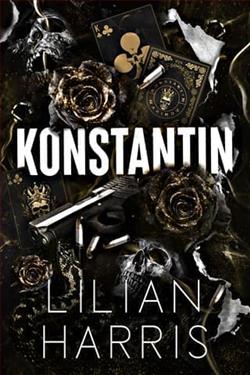Page 9 of The Burning Wire (Lincoln Rhyme 9)
"--that isn't gas, liquid or solid," Rhyme said impatiently.
"Exactly. A fairly small arc flash has the explosive power of a pound of TNT and this one wasn't small."
"And the bus was his target?" Rhyme asked.
"Seems so."
Sellitto said, "But they have rubber tires. Vehicles are the safest place to be in a lightning storm. I saw that someplace, some show."
"True," McDaniel said. "But the UNSUB had it all figured out. It was a kneeling bus. Either he was counting that the lowered step would touch the sidewalk or hoping somebody'd have one foot on the ground and one on the bus. That'd be enough for the arc to hit it."
Noble again twisted a tiny silver mammal on his cuff. "But the timing was off. Or his aim or something. The spark hit the sign pole next to the bus. Killed one passenger, deafened some people nearby, and dinged a few with glass, started a fire. If it'd hit the bus directly, the casualties would've been a lot worse. Half of them dead, I'd guess. Or with third-degree burns."
"Lon mentioned a blackout," Rhyme said.
McDaniel eased back into the conversation. "The UNSUB used the computer to shut down four
other substations in the area, so all the juice was flowing through the one on Fifty-seventh Street. As soon as the arc happened, that substation went offline, but Algonquin got the others up and running again. Right now about six blocks in Clinton are out. Didn't you see it on the news?"
"I don't watch much news," Rhyme said.
Sachs asked McDaniel, "The driver or anybody see anything?"
"Nothing helpful. There were some workers there. They'd gotten orders from the CEO of Algonquin to go inside and try to reroute the lines or something. Thank God they didn't go in before the arc happened."
"There was nobody inside?" Fred Dellray asked. The agent seemed a bit out of the loop and Rhyme guessed there hadn't been time for McDaniel to fully brief his team.
"No. Substations're mostly just equipment, nobody inside except for routine maintenance or repairs."
"How was the computer hacked?" Lon Sellitto asked, sitting noisily in a wicker chair.
Gary Noble said, "We aren't sure. We're running the scenarios now. Our white hat hackers've tried to run a mock terrorist scenario, and they can't get inside. But you know how it works; the bad guys're always one step ahead of us--techwise."
Ron Pulaski asked, "Anybody take credit?"
"Not yet," Noble replied.
Rhyme asked, "Then why terrorism? I'm thinking it's a good way to shut down alarms and security systems. Any murders or burglaries reported?"
"Not so far," Sellitto pointed out.
"A couple of reasons we think it's terrorists," McDaniel said. "Our obscure-pattern-and-relationship-profile software suggests so, for one thing. And right after it happened I had our people go through signals from Maryland." He paused, as if warning that nobody here should repeat what he was about to say. Rhyme deduced the FBI man was referring to the netherworld of intelligence--government snooping agencies that might not technically have jurisdiction in the country but who can maneuver through loopholes to keep on top of possible malfeasance within the borders. The National Security Agency--the world's best eavesdroppers--happened to be in Maryland. "A new SIGINT system came up with some interesting hits."
SIGINT. Signal intelligence. Monitoring cell phones, satellite phones, email . . . Seemed an appropriate approach when confronted with somebody using electricity to stage an attack.
"Picked up references to what we think is a new terror group operating in the area. Never cataloged before."
"Who?" Sellitto asked.
"The name starts with 'Justice' and has the word 'for' in it," McDaniel explained.
Justice For . . .
Sachs asked, "Nothing else?"
"No. Maybe 'Justice For Allah.' 'Justice For the Oppressed.' Anything. We don't have a clue."
"The words in English, though?" Rhyme asked. "Not Arabic. Or Somali or Indonesian."















